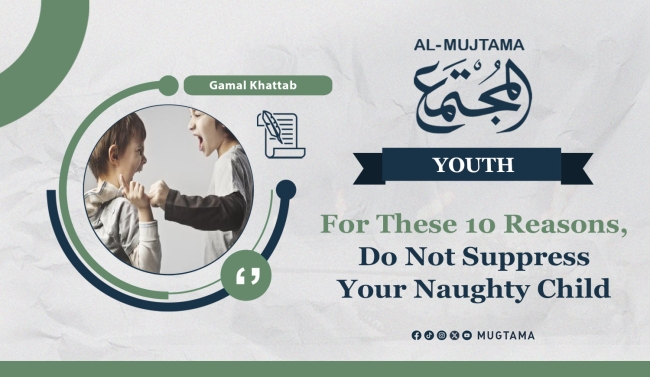Since the dawn of time, children have been exploring space, finding new things, and picking up knowledge. Children have a natural sense of wonder, it is important to encourage this curiosity rather than to suppress the adventure. Stopping kids from being naughty can result in the inability to solve conflicts later in life by youth, so it is crucial to deal with them helpfully. First of all, we look at how kids think about sin and why it's important not to try to prevent it.
First of all, naughtiness is nothing but a natural part of the child's disposition.
Children are born to roam and explore the world around them; this normally leads to misbehavior. According to the most popular child psychologist, Dr. Stuart Brown, "Children are wired for curiosity and enthusiasm, and it's our job as parents to learn how to encourage and channel that enthusiasm" (Brown, 2012). This could have its inbuilt creativity and motivation completely subdued if it is held in tight reins.
Secondly, when the naughtiness of a child is suppressed, negative emotional effects may result.
Crushing children where they are foibles leaves them frustrated, angry, or humiliated. That may affect their emotional life in the long term. The American Psychological Association has revealed that "Suppressing emotions can lead to anxiety, depression, and even physical health problems" (APA, 2019). Children's feelings need to be recognized and validated; they shouldn't be smothered.
Thirdly, at times behavioral problems arise due to suppressed naughtiness.
If children's normal impulses are repressed, they might be driven to act out in rebellious or destructive ways in a vain attempt to express themselves. According to Dr. Alice Miller, "The more a child's natural behavior is suppressed, the more he will resist" (Miller, 1995). Within such parameters, parents may inadvertently be creating behavioral problems that prove hard to control by attempting to suppress naughtiness.
Consequently, the suppressed naughtiness of the child develops into low self-esteem.
It can lead to a sense of inadequacy or unworthiness, resulting in a low self-esteem evaluation. According to the National Institute of Mental Health, "children who experience low self-esteem are more likely to develop depression, anxiety, and other mental health issues" (NIMH, 2020). In this light, when parents accept and support this mischievous nature of children, they boost their self-confidence and self-esteem.
Fifthly, the naughtiness of children needs to be guided rather than simply suppressed.
Instead of suppressing the naughtiness, parents should teach children those skills which would enable them to express themselves appropriately. Teaching boundaries, empathy, and impulse control to children is a sure way of steering their natural exuberance and energy toward appropriate channels.
Sixthly, individuality is important.
Children come into the world with their unique individuality, including their nature, interests, and talents, so it is possible that suppressing naughtiness will stifle this and eventually cause a lack of self-expression. If children's individuality is embraced and celebrated, then parents can help them develop a sense of self and a sense of purpose.
Seventhly, what is called for is the appropriate balance between discipline and liberty.
While discipline is essential to teach children right and wrong, it would not allow any naughtiness at all; too much may suppress it, which can be balanced by giving the child some freedom. Parents will enable the child to have some space to explore and learn while teaching them boundaries.
Eighthly: Suppressed naughty behaviors resurface later in life.
Research shows that "unresolved childhood traumas and unexpressed emotions can resurface later in life, causing harm to the individual and those around them" (Abraham, 2019). Tracing mischievous behaviors in a child and bringing them to an end will prevent the development of problems into long-lasting ones.
Ninthly, causes of the naughtiness need to be identified and addressed.
Much naughtiness is an attention-seeking or acting-out behavior that can indicate emotional or environmental imbalances. Parents' awareness of the source of the problem might prevent further problems from happening if addressed effectively. As Dr. Daniel J. Siegel states, "The key to understanding and addressing naughty behavior is to understand the child's inner experiences and needs" (Siegel, 2012).
Finally, suppressing children's naughty tendencies can be harmful.
So, by holding back creativity, curiosity, and self-expression, they might unintentionally cause a loss of motivation or a feeling of being without hope. The American Academy of Pediatrics says that "kids who are held back can start to feel helpless and without hope, which can lead to sadness and worry" (2018).
Naughtiness is a part of being a child and can be dangerous when suppressed. As a parent, one should encourage creativity, curiosity, and self-expression by embracing their naughtiness. One does not need to extinguish naughtiness but instead, channel or teach children the skills to express themselves appropriately.


